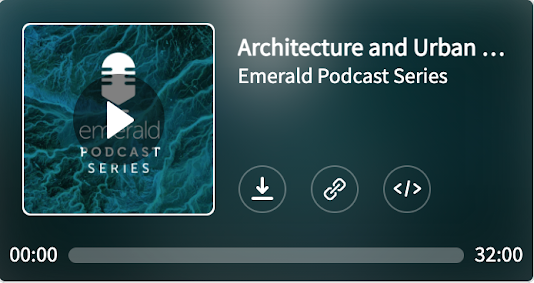Architecture and Urban Design of the Post COVID-19 City.
Recorded 25 June 2020, Published 23 July 2020
The global pandemic has changed the way we use the spaces around us, particularly how we operate in public, whether it be at the grocery store or the workplace. We join Ashraf Salama (University of Strathclyde, UK) to ask what the implications of disease spread are for architectural education and research.
In this episode, Daniel speaks with Ashraf Salama, Professor of Architecture at the University of Strathclyde, Glasgow about the role of architecture and urban planning in the context of the global pandemic. In rethinking how we use public and private spaces under the current conditions, Professor Salama looks ahead to the Post-Covid-19 city. What will the workplace look like? What about city centres, or our homes that that have been transformed into workplaces? The implications of the pandemic for architects and urban planners are wide and far reaching and are already reshaping architectural research and education.
Key Questions addressed in this episode:
- What are the main issues that architects and urban planners must address in the face of Covid-19?
- What are the long-term effects of how we interact with spatial environments post-pandemic?
- What are the negative and positive consequences of the “new normal” as they become the “actual normal?”
- How will urban planners rethink travel and transportation in the post-pandemic city?
- What does retrofitting mean to our relationship with existing buildings and how will it shape our lives?
- What role do architects and urban planners play in developing informal settlements like those in Rio de Janeiro and Mumbai How do architects take a transdisciplinary approach to urban development?
- How is architectural education changing as it looks ahead to the post COVID-19 city?
Listen here: https://radiopublic.com/emerald-podcast-series-WPknJQ/s1!e7b0e








